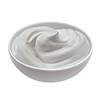Sign In Chef

By using our free meal planner (and the rest of spoonacular.com) you have to agree that you and only you are responsible for anything that happens to you because of something you have read on this site or have bought/cooked/eaten because of this site. After all, the only person who controls what you put in your mouth is you, right?
Spoonacular is a recipe search engine that sources recipes from across the web. We do our best to find recipes suitable for many diets — whether vegetarian, vegan, gluten free, dairy free, etc. — but we cannot guarantee that a recipe's ingredients are safe for your diet. Always read ingredient lists from the original source (follow the link from the "Instructions" field) in case an ingredient has been incorrectly extracted from the original source or has been labeled incorrectly in any way. Moreover, it is important that you always read the labels on every product you buy to see if the product could cause an allergic reaction or if it conflicts with your personal or religious beliefs. If you are still not sure after reading the label, contact the manufacturer.
We also attempt to estimate the cost and calculate the nutritional information for the recipes found on our site. Again, we cannot guarantee the accuracy of this information. Additionally, our nutrition visualizer that suggests that you limit sodium, sugar, etc., and get enough protein, vitamins, and minerals is not intended as medical advice. Similarly, our health tips are based on articles we have read from various sources across the web, and are not based on any medical training. The team behind spoonacular does not possess any medical qualifications and the information may be found to be incorrect or out of date based on future research. If you need help planning your diet or determining which foods (and recipes) are safe for you, contact a registered dietitian, allergist, or another medical professional.
Spoonacular is not responsible for any adverse effects or damages that occur because of your use of the website or any information it provides (e.g. after cooking/consuming a recipe on spoonacular.com or on any of the sites we link to, after reading information from articles or shared via social media, etc.)
×$1.99 per serving

2 likes

Ready in 45 minutes

Spoonacular Score: 72%
If you want to add more gluten free recipes to your repertoire, Chilled Lettuce Soup might be a recipe you should try. This recipe serves 2 and costs $1.99 per serving. This hor d'oeuvre has 244 calories, 11g of protein, and 9g of fat per serving. From preparation to the plate, this recipe takes roughly 45 minutes. This recipe is liked by 2 foodies and cooks. This recipe from Foodista requires lettuce, potato, olive oil, and tarragon. It can be enjoyed any time, but it is especially good for Autumn. Overall, this recipe earns a solid spoonacular score of 74%. Similar recipes include Creamy chilled basil, pea & lettuce soup, Chilled Summer Lettuce, Lovage and Garden Pea Soup, and Chilled Sriracha Lobster Salad Lettuce Cups.
Antipasti can be paired with Sparkling Wine and Sparkling rosé. If you're serving a selection of appetizers, you can't go wrong with these. Both are very food friendly and complement a variety of flavors. The NV Paques et Fils with a 5 out of 5 star rating seems like a good match. It costs about 36 dollars per bottle.
 A very pretty pale pink. Scented with cherries and hydrangea. A spirited rose with tart strawberry on the palate and brisk acidity on the finish, it is refined and sophisticated, but not at all snooty. A perfect brunch wine. Excellent value.
A very pretty pale pink. Scented with cherries and hydrangea. A spirited rose with tart strawberry on the palate and brisk acidity on the finish, it is refined and sophisticated, but not at all snooty. A perfect brunch wine. Excellent value.
» Get this wine on Amazon.com






























Read the detailed instructions on Foodista.com – The Cooking Encyclopedia Everyone Can Edit